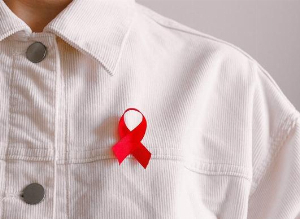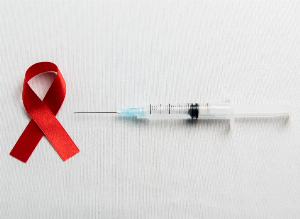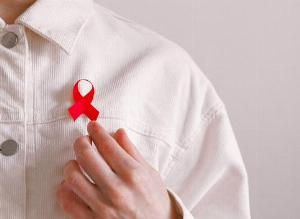HIV and the Coronavirus
Published 12 May 2020 • Updated 13 May 2020 • By Léa Blaszczynski
The Human Immunodeficiency Virus (HIV) affects 36.9 million people worldwide, including more than 103,800 in the UK. HIV targets CD4 lymphocytes, cells essential to the immune system, making the patient vulnerable to opportunistic infection.
The NHS has stated that those with conditions that make them more likely to get infections or who take medicine that can affect the immune system are at high risk of developing a serious form of the COVID-19 infection.
What does ‘higher risk’ mean? How can you protect yourself? Do HIV medications protect you from the virus or make you more vulnerable? Let us answer your questions!

I have HIV, am I more at risk of being affected by COVID-19?
Not all HIV patients are considered to be at increased risk.Those on HIV treatment with a good CD4 count (over 200) and an undetectable viral load, which constitutes 97% of HIV patients in the UK, are not considered to have weakened immune systems. But if your CD4 count is less than 200, if you’re not being treated or if you have a detectable viral load, then it's particularly important that you follow the guidance to reduce the risk of catching the virus. Public Health England recommends to ‘shield’ yourself from the virus, which means staying at home at all times and avoiding face-to-face contact for at least 12 weeks (although this time may change). The Terrence Higgins Trust advises anyone with a CD4 count less than 50 or diagnosed with an opportunistic infection in the last six months to also follow this advice.
Am I at greater risk if I have both HIV and Hepatitis B or C?
According to Professor Gilles Pialoux, head of the infectious and tropical diseases department at Tenon Hospital in Paris, the COVID-19 virus, which is becoming more and more complex in its clinical form, has caused liver damage in some populations. This constitutes an excess risk and carriers of Hep B or Hep C must be particularly vigilant.
What precautions should I take if I am immunocompromised?
Very simply, respect the barrier gestures et stay at home. If symptoms arise (fatigue, loss of taste, fever, cough, difficulty breathing, etc.), contact your GP and inform your HIV clinician or hepatologist. You do not need to contact 111 to tell them you're staying at home and testing for coronavirus is not needed in this case. After 14 days, anyone you live with who does not have symptoms can return to their normal routine. Use the 111 online coronavirus service to find out what to do next.
Can I be told to shield when it is not necessary?
Some people with HIV have been added to the Shielded Patient List in error. These people may have received text messages from the Government or letters from their GPs that have caused confusion and alarm. The NHS has explained that this occurred because some people living with HIV are coded as “immunosuppressed” on some GP records and were automatically added to the SPL. GPs can update the list so that the person is removed if they have a CD4 count above 50, have had no opportunistic infections in the last six months, and have no other reason to shield. If you think you are affected by this then talk to your GP or your HIV clinician and direct them to this guidance.
Some HIV drugs are being tested against COVID-19, so am I safer if I am taking one of these medicines?
This has become a widespread belief since doctors in China dministered an antiretroviral drug used against HIV (Lopinavir-Ritonavir) to patients who had contracted the coronavirus. According to Prof. Gilles Pialoux, there are currently 625 trials registered worldwide involving molecules that are known to be active against HIV. But, for the moment, none of these molecules have shown any efficacy, apart from in-vitro studies. It is therefore recommended that you continue taking your medication at the recommended dose.
If I am infected by COVID and placed in an intensive care unit, will I still receive my treatment?
Of course, there are many solutions used by ICU teams to ensure that you receive your treatment. If there is no injectable form, they can, for example crush the tablets and put them through a gastric tube. No need to worry.
If a vaccine is found, can I be vaccinated?
There are many vaccine development efforts in the works, so a COVID-19 vaccine may eventually come to fruition. However, some vaccines can be contraindicated for immunocompromised patients. It is too early to know what form such a vaccine will take, but it conceivable that they necessary steps will be taken to widely vaccinate all patients.
How to find support on Carenity?
Carenity currently has thousands of patients and relatives of patients affected by HIV. On the platform, you can find support from other members of the community. It is important to help each other, especially in this difficult time of COVID-19 pandemic. Join our current discussions below!
- HIV/AIDS: What are you doing to stay safe from the coronavirus?
- Clichés and stigma around HIV
- Coronavirus: What we know about the end of the lockdown!
- Coronavirus: How to keep busy while self-isolating?
- Today I feel... A coronavirus special!
Contacts and useful sites
You can also contact the Terrence Higgins Trust Direct helpline on 0808 802 1221 from 10am to 6pm Monday to Friday.
Was this article helpful to you? Do you have any advice to share with the community? Feel free to share in the comments below!
Take care and stay home!

 Facebook
Facebook Twitter
Twitter


